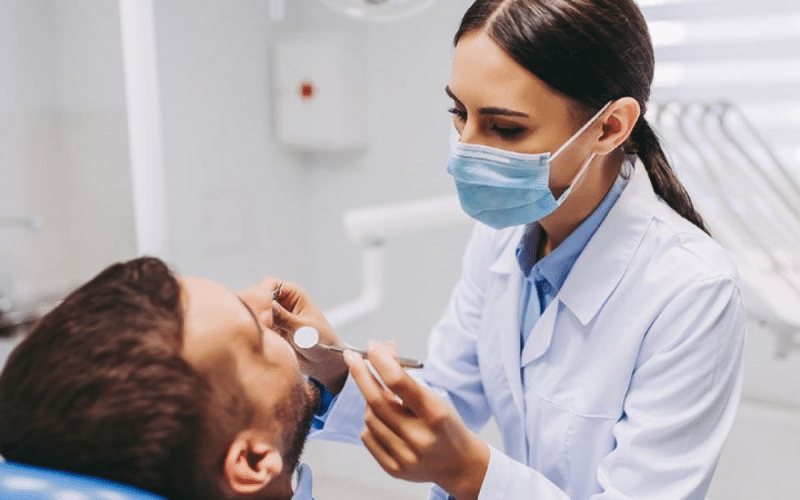
How Do You Stop Tooth Decay From Growing?
Tooth decay takes time to develop, but once it occurs, it cannot be stopped unless you take action. Now is the moment to act if you have spotted one on your teeth or if a dentist has alerted you to the possibility of early deterioration. If it’s detected early enough, then it can be prevented and even reversed. This is a helpful blog for stopping decay before it becomes a cavity.
Why Does Tooth Decay Spread?
Knowing what causes tooth decay can help you figure out how to prevent it. Among the root causes are:
- Foods high in sugar and starch cause cavities.
- Bad dental hygiene practices contribute to the accumulation of plaque.
- Absence of fluoride, helps in enamel remineralization.
- Less protective saliva due to dry mouth.
- Ignoring dental examinations, which postpones early detection.
If decay continues, it will erode your tooth’s enamel, move on to the dentin, and finally strike the nerve, causing discomfort, infection, or even tooth loss.
How To Prevent The Growth of Tooth Decay?
1. Improve Your Dental Health
Eliminating the germs that cause decay is the most effective method of halting it.
Everyday essentials:
- Use fluoride toothpaste to brush twice a day.
- To keep the teeth in between clean, floss once a day.
- Reduce plaque by using an antimicrobial mouthwash.
2. Incorporate Fluoride Into The Blend
Fluoride prevents early decay and makes enamel strong.
- Make use of fluoridated mouthwash and toothpaste.
- Inquire about in-office fluoride treatments from the emergency dentist in Butler, PA.
- Fluoridated water should be consumed whenever possible.
3. Be Aware of Your Diet
Decay can be considerably slowed by reducing sugar intake and eating.
Make wise dietary choices by:
- Consuming more calcium-rich foods, such as leafy greens and dairy.
- Ignoring sugary snacks and beverages.
- Chewing on sugar-free gum to increase the production of saliva.
90% of persons over the age of 20 have had at least one cavity, and many of them go untreated, according to the CDC.
4. Try Remineralizing Products
There are toothpaste and gels made to rebuild enamel during the early stages of decay.
- Look for products with calcium phosphate or fluoride varnishes.
- Ask dentist about prescription-strength pastes.
5. Timely Visit Dentist
Regular exams catch decay early—before you feel pain. pain. Delaying visits allows cavities to worsen, leading to more invasive and costly treatments.
Professional help includes:
- Spotting and treating early decay with sealants or fillings.
- Cleaning areas you can’t reach at home.
- Providing preventive care like fluoride treatments and x-rays.
- Monitoring changes in your oral health and offering personalized care plans to keep your teeth strong and cavity-free.
What Not to Do?
Avoiding the dentist or hoping decay will “go away” on its own is a risky move. Once the enamel is significantly damaged, only a dental procedure can fix it. Waiting too long may mean needing:
- Fillings.
- Crowns.
- Root canals.
- Tooth extraction.
Tooth decay is sneaky, but it’s also preventable and stoppable—especially in the early stages. With consistent care, smart habits, and regular dental visits, you can keep decay from growing and protect your smile. Don’t wait for pain to act—by then, it may be too late.





